
Eating well is essential for everyone, but it becomes especially important for those with kidney concerns. A proper diet can help manage chronic kidney disease and promote overall health. In this article, I will share 9 of the best kidney diet recipes to help you make delicious and nutritious meals.
These recipes focus on balancing flavors while being mindful of sodium and potassium levels. I believe preparing meals that support kidney health doesn’t have to be complicated or dull. By incorporating these recipes, I can help you enjoy food while taking care of your kidneys.
1. Grilled Chicken with Herb Butter
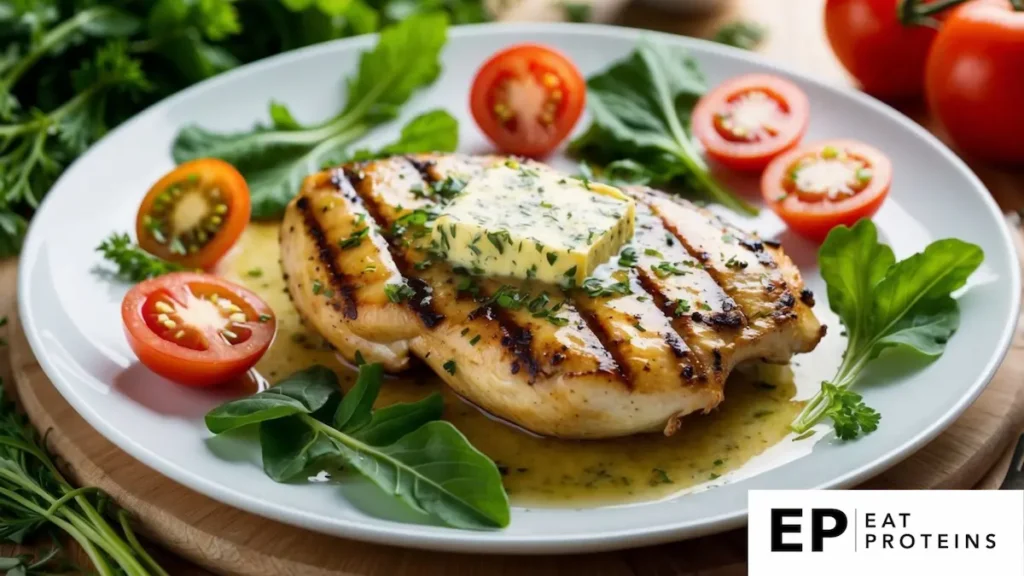
Grilled Chicken with Herb Butter is a delicious and healthy choice for those following a kidney-friendly diet. It is simple to make and can be ready in about 30 minutes.
To start, I gather my ingredients: boneless chicken breasts, unsalted butter, fresh herbs like parsley and thyme, salt, and pepper. The use of unsalted butter is important for managing sodium intake.
Here are the steps I usually follow:
- Prepare the herbs: Chop the fresh herbs finely.
- Make the herb butter: In a bowl, mix the butter with the chopped herbs, salt, and pepper.
- Prepare the chicken: Pat the chicken breasts dry and season with a little salt and pepper.
- Grill the chicken: Preheat the grill, then cook the chicken for about 6-7 minutes on each side until it reaches an internal temperature of 165°F.
- Melt the butter: In the last minute of cooking, spoon the herb butter over the chicken to melt.
This dish is not only tasty but also provides a good source of protein while being easy to prepare. I love how the fresh herbs enhance the flavor without adding extra sodium.
2. Salmon with Lemon Dill Sauce
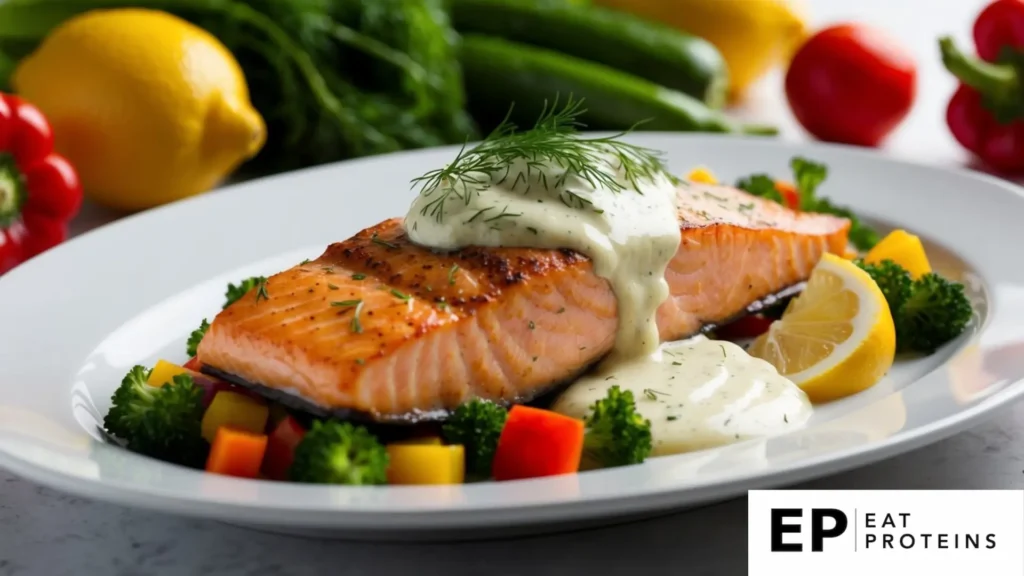
Salmon with Lemon Dill Sauce is a flavorful dish that fits well into a kidney-friendly diet. Salmon is rich in omega-3 fatty acids, which are good for heart health. The lemon and dill add freshness and enhance the taste without extra sodium.
I find this recipe easy to make, even for beginners. It requires only a few simple ingredients: salmon fillets, lemon juice, fresh dill, olive oil, salt, and pepper.
Here are the steps to prepare it:
- Preheat the grill or oven to medium heat.
- In a bowl, mix 2 tablespoons of olive oil, the juice of 1 lemon, and 2 tablespoons of chopped dill.
- Place the salmon fillets skin-side down on a baking sheet or grill.
- Brush the lemon dill mixture over the salmon.
- Season with a pinch of salt and pepper if desired.
- Cook for about 9 minutes or until the salmon flakes easily with a fork.
This dish is quick to whip up and pairs well with steamed vegetables or brown rice. It’s a healthy option that satisfies without overwhelming the palate.
3. Quinoa and Vegetable Stir-Fry
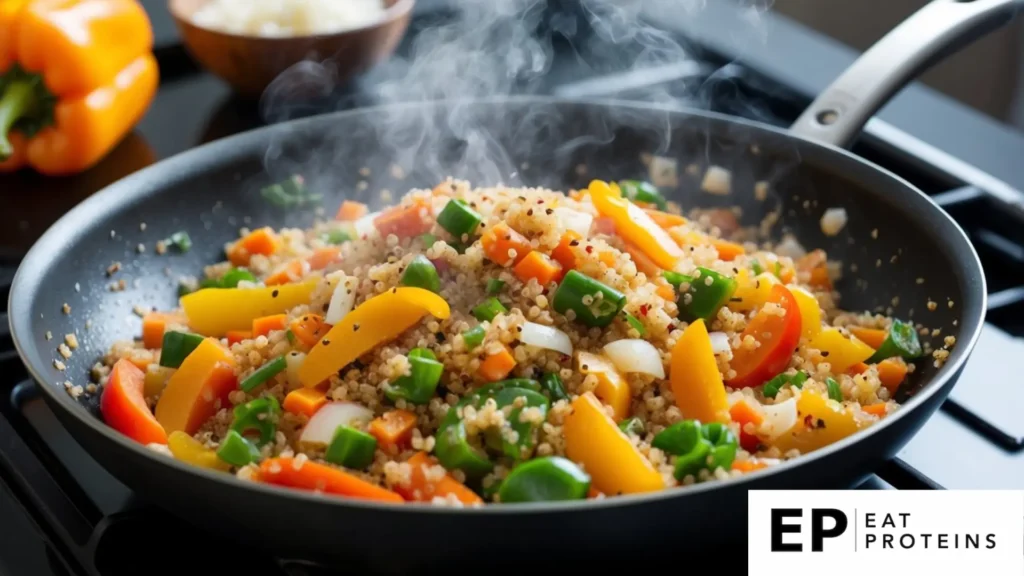
Quinoa is a nutritious whole grain that is high in protein. It cooks quickly and is a great base for many dishes. Stir-frying vegetables with quinoa creates a colorful and healthy meal.
Making this dish is easy. I often prepare it in under 30 minutes. Here’s how I do it:
- Rinse 1 cup of quinoa under cold water.
- Cook the quinoa in 2 cups of water. Bring it to a boil, then lower the heat and let it simmer for about 15 minutes.
- While it cooks, chop your choice of vegetables. I usually use bell peppers, broccoli, and carrots.
- Heat 1 tablespoon of olive oil in a pan over medium heat.
- Add the vegetables and stir-fry for about 5-7 minutes until they are tender but still crisp.
- Fluff the cooked quinoa with a fork and add it to the pan.
- Season with salt, pepper, and a splash of soy sauce. Stir everything together for about 2 minutes.
This stir-fry is packed with flavor and can be easily customized with your favorite vegetables.
4. Greek Yogurt and Berry Parfait
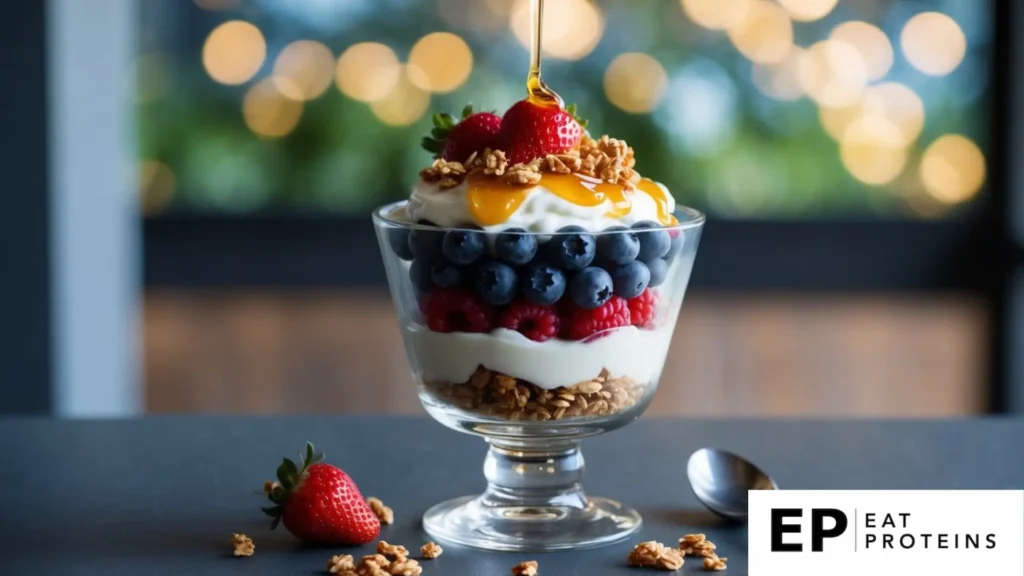
Greek yogurt is a thick, creamy yogurt that is high in protein. It can be a great addition to a kidney-friendly diet.
Making a Greek yogurt and berry parfait is simple and quick. I enjoy this healthy recipe for breakfast or a snack.
Here are the steps:
- Gather ingredients: 1 cup Greek yogurt, 1/2 cup mixed berries (like strawberries and blueberries), 1 tablespoon honey, and 1/4 cup granola (optional).
- In a bowl, add the Greek yogurt.
- Layer the mixed berries on top of the yogurt.
- Drizzle honey over the berries for sweetness.
- If desired, sprinkle granola on top for crunch.
This parfait is nutritious and satisfying. It’s easy to customize with different fruits or nuts. Enjoying this treat supports healthy eating while being kind to my kidneys.
5. Cucumber and Avocado Salad
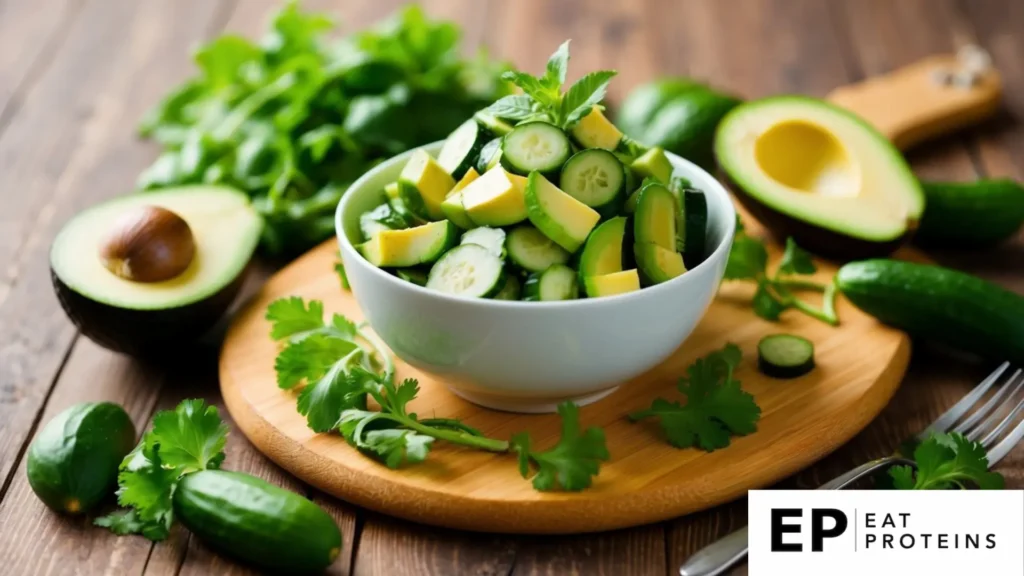
Cucumber and avocado salad is a refreshing dish that is simple to prepare. It offers a variety of nutrients beneficial for kidney health. This salad combines crunchy cucumbers with the creamy texture of avocados.
To make this salad, I find it easy to gather fresh ingredients. You will need:
- 1 large cucumber
- 1 ripe avocado
- 1 tablespoon lemon juice
- Salt and pepper to taste
- Optional: fresh herbs like parsley or cilantro
Here are the steps to prepare the salad:
- Wash and slice the cucumber into thin rounds.
- Cut the avocado in half, remove the pit, and scoop the flesh into a bowl.
- Mash the avocado lightly with a fork.
- Mix the cucumber slices with the avocado in a bowl.
- Add lemon juice, salt, and pepper. Toss gently to combine.
This salad is not only quick to make but also delicious. I enjoy it as a side dish or a light meal, especially during warm days.
6. Baked Cod with Tomato Relish

Baked cod with tomato relish is a simple and nutritious dish. Cod is a great source of protein and low in fat, making it suitable for a kidney-friendly diet. Tomato relish adds flavor and vitamins.
This recipe is easy to prepare. I can make it in about 30 minutes. It’s perfect for a quick weeknight dinner.
To make baked cod with tomato relish, I follow these steps:
- Preheat the oven to 400°F (200°C).
- Place cod fillets on a baking sheet lined with parchment paper.
- Drizzle a little olive oil, and add salt and pepper to taste.
- In a separate bowl, mix diced tomatoes, chopped onions, and herbs like basil or parsley for the relish.
- Spoon the tomato mixture over the cod.
- Bake for 15-20 minutes or until the fish flakes easily with a fork.
This recipe is not only easy but also delicious. I enjoy the combination of tender fish and savory relish. It’s a healthy meal option that fits well within a renal diet.
7. Overnight Chia Pudding
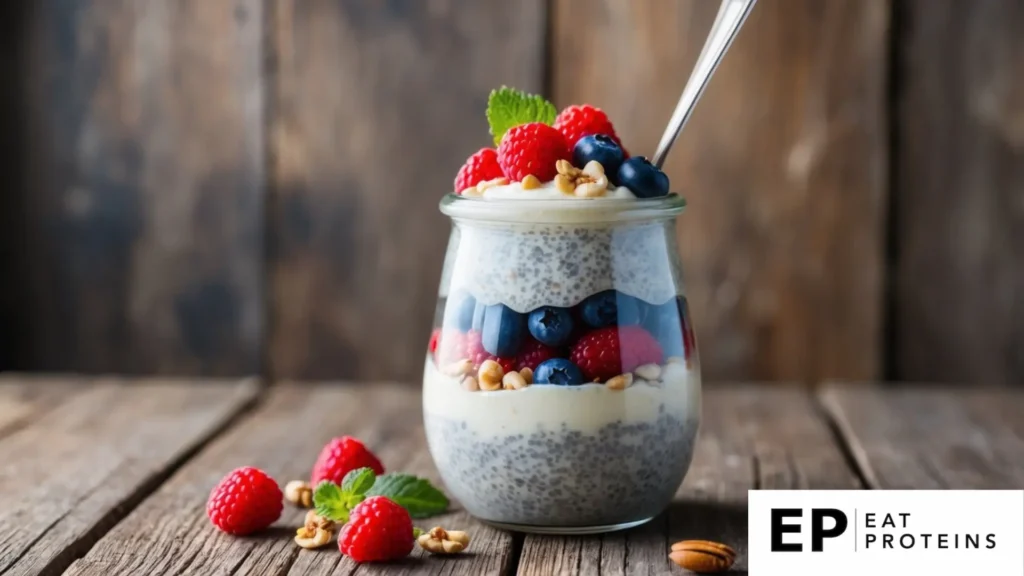
Overnight chia pudding is a nutritious dish made by soaking chia seeds in liquid, usually milk or a milk alternative. This process creates a thick, creamy texture. It’s an excellent option for a breakfast or snack, especially for those following a kidney-friendly diet.
I find it easy to prepare with just a few ingredients. Here’s how I make it:
- In a bowl or jar, combine 1/4 cup of chia seeds with 1 cup of unsweetened almond milk.
- Stir in 1 tablespoon of honey or maple syrup for sweetness, if desired.
- Add a dash of vanilla extract for flavor.
- Mix well to avoid clumps of chia seeds.
- Cover the bowl or jar and refrigerate overnight.
- In the morning, stir the pudding again and top with fresh fruits like berries or sliced bananas.
This pudding is versatile and can be tailored to my taste. It provides fiber and healthy fats while being low in potassium, making it a smart choice for managing kidney health.
8. Roasted Red Pepper Hummus with Veggies
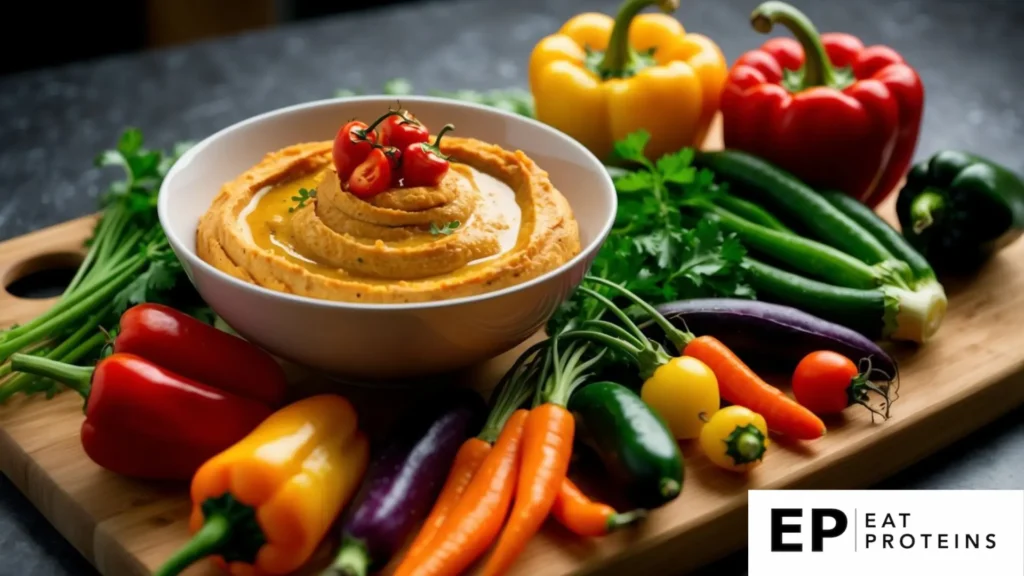
Roasted red pepper hummus is a tasty and healthy option for a kidney diet. It’s packed with flavor and nutrients without being heavy. This dish is simple to prepare and can be enjoyed as a dip or spread.
To make the hummus, I start with a few key ingredients. I need canned chickpeas, roasted red peppers, tahini, garlic, and lemon juice. Blending these together creates a smooth and creamy texture.
Here are the steps to prepare it:
- Drain and rinse one can of chickpeas.
- Add the chickpeas to a blender along with one cup of roasted red peppers, two tablespoons of tahini, one clove of garlic, and two tablespoons of lemon juice.
- Blend until smooth. If it’s too thick, I can add a little water to reach my desired consistency.
- Serve with fresh veggies like carrots, cucumber, or bell peppers for dipping.
This recipe is quick and can be made in under 15 minutes. It’s a great way to add flavor and nutrients to my meals while being kidney-friendly. Enjoy!
9. Grilled Asparagus with Lemon Zest
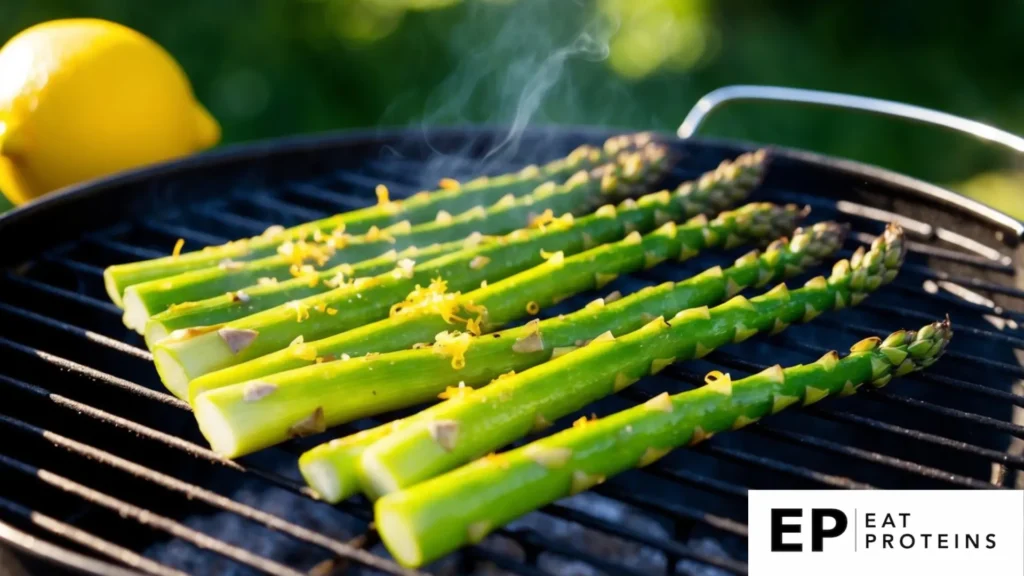
Grilled asparagus with lemon zest is a simple and delicious side dish. Asparagus is low in calories and rich in nutrients, making it an excellent choice for a kidney-friendly diet.
I find it very easy to make. Here are the steps:
- Ingredients: Gather 1 bunch of fresh asparagus, 1 tablespoon of olive oil, juice and zest from 1 lemon, salt, and pepper to taste.
- Prepare Asparagus: Rinse the asparagus and trim the tough ends.
- Season: In a bowl, mix olive oil, lemon juice, lemon zest, salt, and pepper. Add the asparagus and toss until coated.
- Grill: Preheat the grill to medium-high heat. Place the seasoned asparagus on the grill.
- Cook: Grill for about 5-7 minutes, turning occasionally until tender and slightly charred.
This recipe highlights the fresh taste of asparagus while the lemon zest adds a bright finish. It’s perfect for any meal and complements many dishes.
How Does Diet Affect Kidney Health?
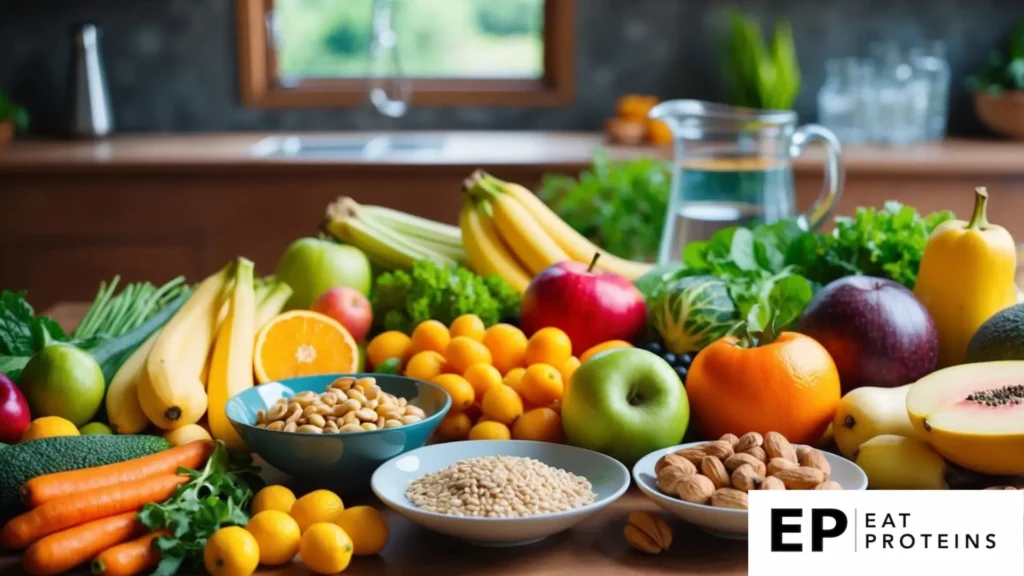
Maintaining good kidney health is crucial for overall well-being. The kidneys perform essential functions and play a significant role in how diet affects their health. Understanding these aspects can help me make better choices.
What Are The Functions Of The Kidneys?
The kidneys are vital organs that perform several important functions:
- Filtration: They filter waste products from the blood and turn them into urine, which is then excreted.
- Regulation: The kidneys help regulate blood pressure by controlling the volume of blood. They also balance electrolytes, like sodium and potassium, which are important for muscle function and heart health.
- Red blood cell production: They release a hormone called erythropoietin, which stimulates the production of red blood cells, ensuring enough oxygen is delivered throughout my body.
Maintaining these functions is essential for preventing kidney disease and other health issues.
What Is The Importance Of Kidney Health?
Diet plays a key role in kidney health. Eating the right foods can support kidney function and help prevent damage. Here are some important dietary considerations:
- Low sodium: Reducing sodium intake helps control blood pressure and reduces kidney strain.
- Protein moderation: Limiting protein can lessen the workload on the kidneys, especially for those with existing kidney conditions.
- Hydration: Drinking enough water aids in the kidneys’ filtration process, helping to eliminate waste effectively.
Incorporating foods that are rich in vitamins and minerals can further support kidney health. Making mindful dietary choices is essential for maintaining my kidney function and reducing the risk of disease.
What Are The Key Nutrient Considerations For Kidney Health?
Managing kidney health involves paying close attention to specific nutrients. Sodium, potassium, protein, and hydration play major roles in how well our kidneys function. I will discuss each of these aspects to help make food choices that support kidney health.
How Should Sodium And Potassium Be Managed For Kidney Health?
Sodium is often a key concern for those with kidney issues. Reducing sodium intake can help lower blood pressure and decrease fluid retention. I aim for less than 2,300 mg of sodium per day. Foods high in sodium include processed meals, canned soups, and salty snacks.
Potassium also needs consideration, as both high and low levels can be harmful. Foods like bananas, oranges, and potatoes contain high potassium. Instead, I focus on options like apples, berries, and white rice, which help manage potassium levels effectively.
What Are The Protein Intake Guidelines For Kidney Health?
Protein is essential for health, but too much can strain the kidneys. I follow a tailored approach, which typically suggests reducing protein intake. For those with kidney disease, I aim for around 0.6 to 0.8 grams of protein per kilogram of body weight.
Lean meats, fish, and plant-based proteins are my preferred choices. Eggs, tofu, and beans can also be good options but should be consumed in moderation. I avoid high-protein foods such as red meats and processed protein bars, as they can be overwhelming for the kidneys.
Why Is Hydration Important For Kidney Health?
Staying hydrated is crucial for kidney health. Proper fluid intake helps the kidneys filter waste from the bloodstream. I focus on drinking enough water throughout the day, aiming for about 8 cups or more, depending on individual needs.
However, some individuals with renal restrictions may need to limit fluid intake. I adjust according to my doctor’s advice. Herbal teas and low-sodium broths can be great alternatives to plain water. It’s important to monitor signs of dehydration, such as dark urine or dry skin, to ensure I maintain optimal hydration levels.
